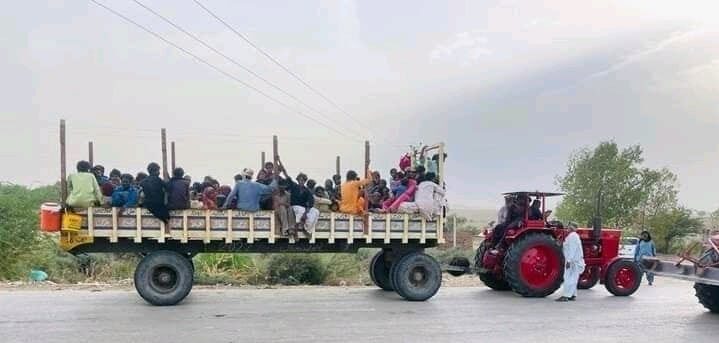In the face of these formidable challenges, Pathfinder is taking proactive steps to fortify communities against climate shocks.
In the face of a changing climate, Pakistan finds itself increasingly vulnerable to the devastating impacts of extreme weather events. Last month, the arrival of tropical cyclone Biparjoy served as a stark reminder of the urgent need for resilience-building efforts. Although the storm weakened before making landfall, it triggered mass evacuations, leaving communities on both sides of the border in Pakistan and India on edge. The scars from the unprecedented floods of the previous year are still fresh in people's minds. In 2022, floods in Pakistan claimed over 1,700 lives, decimated crops and livestock, disrupted access to critical health services, including sexual and reproductive health, and exposed communities to multiple insecurities. The economic toll exceeded a staggering $30 billion.
This scenario is not an anomaly; it's becoming the new normal. Extreme weather events are growing in frequency and intensity, and Pakistan is rated among the top risk-prone nations regarding temperature rise and the associated economic and social losses, as highlighted by the Asian Development Bank and the World Bank. However, the consequences of climate change are not confined to environmental degradation. They exacerbate social inequalities, particularly among the most vulnerable groups. Women and girls bear the brunt of these impacts, including an increased risk of gender-based violence and child and forced marriage.
Pathfinder's Climate Resilience Initiative
In the face of these formidable challenges, Pathfinder is taking proactive steps to fortify communities against climate shocks. Our approach extends beyond emergency response; it's about preparedness and long-term resilience. We're working on strengthening health systems and empowering communities, with a particular emphasis on ensuring that women and girls have improved access to healthcare services and greater agency over their lives. Notably, scientists and researchers rank the empowerment of women, particularly regarding their sexual reproductive health, as the 7th most effective solution to global warming.
Empowering Women for Climate Action
Empowerment is at the core of our strategy. We recognize that women and girls can play a pivotal role in climate action. When women are engaged in climate work, programs are more likely to meet their needs and reduce their vulnerability. Thus, "I am Resilient, I am Change" focuses on empowering women from local communities to the international stage. By fostering greater agency, we're turning women into change agents.
Beyond Emergency Response
While we swiftly responded to last year's flooding, providing essential supplies and medicines, our current efforts transcend emergency response. We are preparing communities and health systems to withstand climate shocks. Through our "Advancing the Leadership of Women and Girls for Better Health and Climate Change Resilience" program, we've collaborated closely with local communities and partners to identify gaps in the healthcare system that leave people vulnerable during crises.
Building Resilient Health Systems
Health facility assessments were conducted in hundreds of health facilities across Sindh Province and Khyber-Pakhtunkhwa, revealing critical gaps in preparedness. These assessments are paving the way for improved disaster preparedness, including the establishment of emergency staffing plans to ensure round-the-clock coverage of essential services during emergencies.
Community Engagement
Our efforts also involve community engagement, including academia and climate practitioners, to enhance our understanding of climate adaptation. We are piloting student-designed solutions in project districts, leveraging global best practices and indigenous knowledge.
Civil Society Collaboration
Moreover, we're collaborating with longstanding civil society organizations that have been at the forefront of climate resilience in their communities. These collaborations encompass livelihood support, community space creation, referral linkages for support services, advocacy plans for disaster preparedness, mentoring of female climate champions, and improved counseling services for adolescents and youth.
Pathfinder's journey has just begun, but we understand that preparation is the key when climate shocks strike. We have much to learn from our response to Biparjoy. Our next steps involve reviewing our approaches and plans, working closely with communities and public health systems, and refining our strategies. As the rainy season approaches, Pathfinder's work in incorporating contingency planning, coordination, and response mechanisms will lead the way towards a more climate-resilient future.
Together, we're building resilience, fostering empowerment, and securing a sustainable future for Pakistan's communities in the face of a changing climate.


